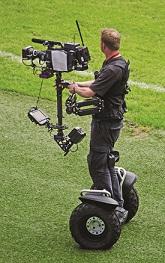
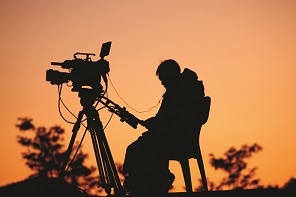 Managing a sporting event is no small accomplishment. And marketing your event is a critical step in ensuring strong attendance – not to mention volunteer support and funding. But with so much on your plate already, event promotion can seem like a formidable task to tackle. The good news is that there is help at your fingertips in your event’s host city at the local convention and visitor bureau (CVB) or sports commission.
Managing a sporting event is no small accomplishment. And marketing your event is a critical step in ensuring strong attendance – not to mention volunteer support and funding. But with so much on your plate already, event promotion can seem like a formidable task to tackle. The good news is that there is help at your fingertips in your event’s host city at the local convention and visitor bureau (CVB) or sports commission.
In fact, not only is the CVB /sports commission the right place to stop for media relations support for your next event, it should be a factor before you select your event location. Consider the typical process in evaluating event destinations. The first criterion usually is selecting a city with the right venue for your needs, and the second is making sure it is accessible to spectators and fans. The third factor usually consists of looking at a myriad of available local support services that can make your event a success (sponsorship support, volunteer recruitment, etc.). One of those items should be assistance with media relations. And while media relations services may not be the driving force in selecting a destination, it could help tip the scales to one versus another if all things are equal.
Why lean on the local CVB or sports commission for help, especially if your organization has public relations staff? It’s quite simple – you need local media knowledge and relationships. You are coming to a city as an outsider, and you’ll want to take advantage of the media market knowledge that only a local can bring. Consider that these PR professionals contact media in their city constantly – they know the names and interest angles of the various media outlets in the community, which outlets are more inclined to cover sporting events, what time of day to pitch them and where to pitch at each outlet based on years of working together. This is hard to do when you are from out of town. Plus, you have an event to run – this is an activity that you will want to hand over to the pros who manage media relations for a living.
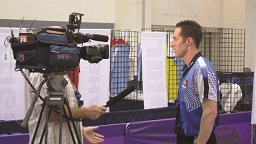
If you’ve already selected your destination city, now is the time to start looking for that local entity – a chamber of commerce, CVB or sports commission (found in larger cities where securing and promoting sporting events is handled by a separate organization) – that can promote your event locally. Once you engage that on-the-ground media resource from the CVB or sports commission, here are some additional tips to assure a more successful outcome of media coverage for your event:
Engage your media relations partner early and often. The on-the-ground PR person at the CVB or sports commission is part of your event team now. Include them in your LOC meetings, copy them on event update e-mails and meet with them on occasion to provide event updates. This allows them to think about media outreach along the way and strategize about various opportunities and angles.
Provide details that will help make a good news story. Media in any town are looking for a unique, human interest story that can bring your event to life. Maybe it’s a great athlete they can profile. Perhaps your event is the first at a new venue. Or it’s an unusual sport that needs some explaining and show-and-tell. Whatever it is, arm your local public relations partner with content that strengthens the media pitch. The more background information, stories, photos and fun facts you can provide them, the more they have to pitch to their local media.
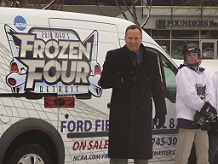
Don’t forget about hyper-local media – and be ready to provide content directly. As mentioned earlier, sometimes you will have a more favorable and responsive media audience in a smaller community where your event is rare and unique. And that interest may come from small, community media outlets that you may at first not see the value in courting, such as weekly newspapers or free community event magazines. The beauty of these outlets that often are understaffed is that they may use your content verbatim – running your press release, including your photos or even giving you a chance to write the story.
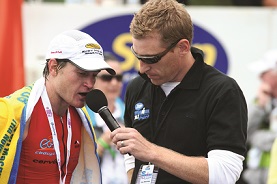
In terms of social media tools like Facebook and Twitter, ask if your CVB can establish these for you as well. These are great, free tools that allow you to communicate directly with a prequalified fan base who chooses to like your page or follow your Twitter handle. All messages should continue to drive traffic back to your event website as well. And while you’ll still want someone from your team posting to your social media sites since you are most aware of day-to-day event news, the local CVB can be a co-administrator to increase the level of content.
Pitch media not only about the event itself but also about any support needs. While most event planners think of contacting media to promote the event itself to help generate spectators, traditional and social media are also great conduits for communicating other needs, like recruiting local participants, volunteers and even sponsors.
As you plan that next big sporting event, remember that there is help out there for your event publicity. By offloading the media relations function to a local resource like a community CVB or sports commission, you are freeing up valuable time that you can spend elsewhere on the planning side. As an added bonus, the service is typically free as part of the bid contract. Best of all, you’re leaving media relations in the hands of the experts who do this every day and in the community of your event – which ultimately helps ensure the greatest opportunity for success.

